
Gaius Julius Caesar Augustus, also known as Octavian, was the founder of the Roman Empire. He reigned as the first Roman emperor from 27 BC until his death in AD 14. The reign of Augustus initiated an imperial cult, as well as an era of imperial peace in which the Roman world was largely free of armed conflict. The Principate system of government was established during his reign and lasted until the Crisis of the Third Century.

Marcus Antonius, commonly known in English as Mark Antony, was a Roman politician and general who played a critical role in the transformation of the Roman Republic from a constitutional republic into the autocratic Roman Empire.

La bohème is an opera in four acts, composed by Giacomo Puccini between 1893 and 1895 to an Italian libretto by Luigi Illica and Giuseppe Giacosa, based on Scènes de la vie de bohème (1851) by Henri Murger. The story is set in Paris around 1830 and shows the Bohemian lifestyle of a poor seamstress and her artist friends.
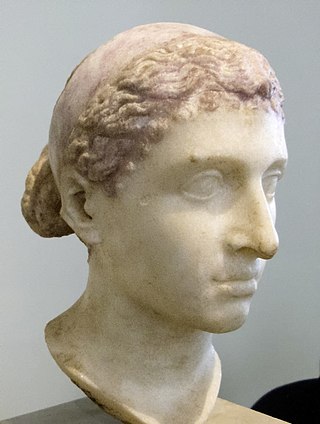
Cleopatra VII Thea Philopator was Queen of the Ptolemaic Kingdom of Egypt from 51 to 30 BC, and its last active ruler. A member of the Ptolemaic dynasty, she was a descendant of its founder Ptolemy I Soter, a Macedonian Greek general and companion of Alexander the Great. Her first language was Koine Greek, and she is the only Ptolemaic ruler known to have learned the Egyptian language. After her death, Egypt became a province of the Roman Empire, marking the end of the last Hellenistic-period state in the Mediterranean, a period which had lasted since the reign of Alexander.

Marcello Vincenzo Domenico Mastroianni was an Italian film actor and one of the country's most iconic male performers of the 20th century. He played leading roles for many of Italy's top directors in a career spanning 147 films between 1939 and 1996, and garnered many international honours including two BAFTA Awards, two Best Actor awards at the Venice and Cannes film festivals, two Golden Globes, and three Academy Award nominations.
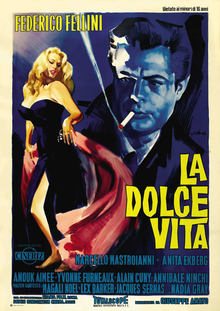
La dolce vita is a 1960 satirical comedy-drama film directed by Federico Fellini. It was written by Fellini, Ennio Flaiano, Tullio Pinelli, and Brunello Rondi. The film stars Marcello Mastroianni as Marcello Rubini, a tabloid journalist who, over seven days and nights, journeys through the "sweet life" of Rome in a fruitless search for love and happiness. The screenplay can be divided into a prologue, seven major episodes interrupted by an intermezzo, and an epilogue, according to the most common interpretation.

Marcello Truzzi was an American sociologist and academic who was professor of sociology at New College of Florida and later at Eastern Michigan University, founding co-chairman of the Committee for the Scientific Investigation of Claims of the Paranormal (CSICOP), a founder of the Society for Scientific Exploration, and director for the Center for Scientific Anomalies Research.
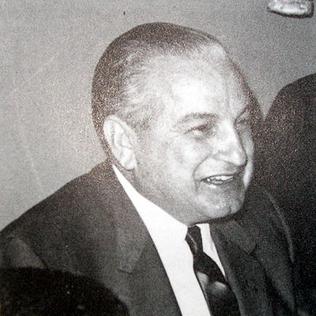
Carlos Joseph Marcello ;[Mor-sel-lo] born Calogero Minacore ; February 6, 1910 – March 3, 1993) was an Italian-American crime boss of the New Orleans crime family from 1947 to 1983.
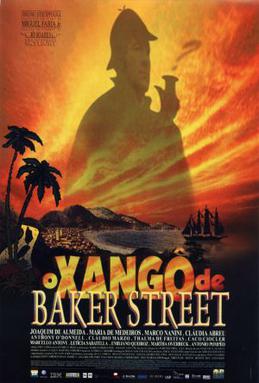
O Xangô de Baker Street is 2001 Brazilian-Portuguese film directed by Miguel Faria Jr., based on the novel of the same name by Jô Soares. The film was first announced in 1996, but filming only started in September 1998 in Porto, Portugal, lasting until 1999.
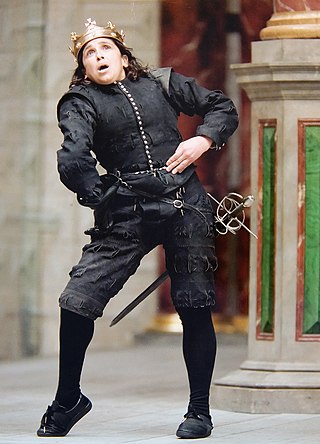
Aikaterini Hadjipateras, known professionally as Kathryn Hunter, is a British–American actress and theatre director, known for her appearances as Arabella Figg in the Harry Potter film series, Eedy Karn in the Disney+ Star Wars spinoff series Andor, as the Three Witches in Joel Coen's The Tragedy of Macbeth, and most recently as Swiney in Yorgos Lanthimos's Poor Things. Hunter was born in New York to Greek parents, and was raised in England. She trained at RADA where she is now an associate, and regularly directs student productions.
The New Orleans crime family, also known as the Marcello crime family or the New Orleans Mafia, was an Italian-American Mafia crime family based in New Orleans, Louisiana. The family had a history of criminal activity dating back to the late nineteenth century. These activities included racketeering, extortion, gambling, prostitution, narcotics distribution, money laundering, loan sharking, fencing of stolen goods, and murder. Operating along the Gulf Coast, with its main criminal activity centered in the New Orleans area, the organization reached its height of influence under bosses Silvestro Carollo and Carlos Marcello.

Mulheres Apaixonadas is a Brazilian telenovela which originally aired on Rede Globo from 17 February 2003 to 10 October 2003 with a total of 203 episodes. It was created by Manoel Carlos and written by him with Maria Carolina, Fausto Galvão and Vinícius Vianna, and directed by Marcelo Travesso, Ary Coslov, Ricardo Waddington, Rogério Gomes and José Luiz Villamarim.

Marcello Bertinetti was an Italian fencer. He competed in sabre and épée events at the 1908, 1924 and 1928 Summer Olympics and won four team medals. Individually he won a silver medal in the épée at the 1929 World Championships.

Belíssima is a Brazilian telenovela that was produced and aired by TV Globo between November 7, 2005, and July 7, 2006, as the 8pm telenovela of the station, with a total of 209 chapters. It was written by Sílvio de Abreu in collaboration with Sérgio Marques and Vinícius Vianna, directed by Flávia Lacerda, Gustavo Fernandez and Natália Grimberg, with the general direction of Carlos Araújo, Luiz Henrique Rios and Denise Saraceni. It was produced by Denise Saraceni core, with Carmen Righetto research.

Passione is a Brazilian telenovela that originally aired on TV Globo from May 5, 2010, to January 14, 2011. It was created and written by Sílvio de Abreu.
Flordelis – Basta uma Palavra para Mudar is a 2009 Brazilian film based on the life of gospel singer and politician Flordelis.
Um Só Coração is a 2004 Brazilian miniseries, produced by Rede Globo that paid homage to the city of São Paulo. It aired during the months of January, February and March 2004, when the celebration of the 450th anniversary of the founding of the city.

Coração de Estudante is a Brazilian telenovela produced and broadcast by TV Globo in 2002.

Salsa e Merengue is a Brazilian telenovela produced and broadcast at the 7pm timeslot by TV Globo, from September 30, 1996 to May 2, 1997, in 185 episodes.

Um Anjo Caiu do Céu is a Brazilian telenovela produced and broadcast by TV Globo. It premiered on 22 January 2001, replacing Uga-Uga, and ended on 25 August 2001, replaced by As Filhas da Mãe. The telenovela is written by Antônio Calmon, with the collaboration of Eliane Garcia, Lílian Garcia, Márcia Prates, Maria Helena Nascimento, and Álvaro Ramos.















